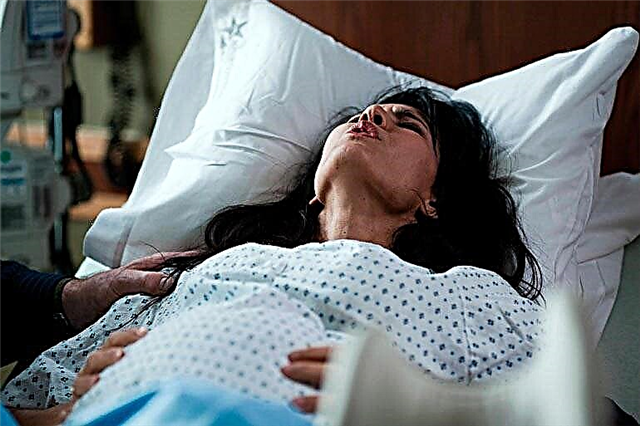
Infertile couples are usually referred to IVF as a last resort. Naturally, there are high hopes for assisted reproductive medicine, and an unsuccessful IVF attempt can throw spouses out of balance for a long time. Why in vitro fertilization is not always successful, how to cope with it and what to do next, we will tell in this article.

Probability of a successful procedure
Despite the level of development of modern reproductive medicine, no one can guarantee the success of this attempt. This should be well understood during the preparatory phase for the first protocol. Failure is likely, and this should be recognized and understood from the very beginning, so that later it does not turn into a serious psychological problem.
The percentage of the probability of a successful pregnancy depends on the health status of the spouses, their age, the quality of the biological material, as well as the mass of accompanying factors, not all of which are currently obvious to scientists and doctors. According to the most optimistic forecasts, no more than 45-50% of women under the age of 35 can become pregnant from the first attempt with IVF. If a woman is 37-38 years old, the success rate of an attempt is no more than 35%, and if a woman decides to become a mother at 40 years old, then the IVF success rate drops to 19%. At 42, only 8% of women become pregnant after their first IVF attempt.
The probability of conceiving a baby in the second or third protocol increases significantly, but after the fourth attempt, the chances of pregnancy are reduced to the base 10-12% instead of 45%.
Thus, the first unsuccessful attempt should not be a reason for depression, because the chances of the next attempt will be significantly higher.


Reasons for failure
Every woman who has gone through an unsuccessful IVF knows how hard it can be to accept a fact and realize its true reasons. Nevertheless, this must be done in order to clearly understand what is happening and whether it can be influenced. To the woman's question why this happened, doctors most likely cannot answer unequivocally. There are many reasons for IVF failure.
- The woman's age (the older she is, the less likely a successful implantation is).
- Increased levels of the hormone FSH (this hormone is used at the stage of preparing the ovaries for puncture and egg collection). Before ovulation, a woman receives exactly follicle-stimulating hormonal support. If there is a malfunction in the body, the level of FSH can be significantly higher than necessary.
- Insufficient number of eggs (if doctors managed to obtain few oocytes, the likelihood of a successful outcome of the protocol is significantly reduced).
- Insufficient number of embryos, which were obtained during artificial insemination and passed a high-quality "selection".
- The quality of the embryos turned out to be low (even after "selection", not all remaining zygotes can "boast" of high viability and resistance).


Even if the doctors managed to get a sufficient number of eggs and normal embryos, there is no guarantee that they will take root, because it also depends on the health status of the expectant mother. Among the diseases and conditions that most often impede the success of an IVF attempt, the following can be noted:
- endometriosis and chronic endometritis;
- thin functional stand of the uterine epithelium due to a large number of previously performed abortions or curettage of diagnostic or therapeutic sense;
- hydrosalpinx;
- genetic incompatibility of partners;
- exacerbation under the influence of preparatory hormone therapy of diseases such as diabetes, toxic goiter, chronic kidney and liver pathologies;
- being overweight in a man or woman;
- poor sperm quality in a man.
Also, a special place in the list of possible reasons for a failed IVF attempt is given to idiopathic reasons, which cannot be established. They are called inexplicable, and with the correction of the protocols in the next attempts, for such reasons, many difficulties arise, since it is not clear what exactly and how needs to be adjusted.
A woman should be aware that the likelihood of successful IVF is reduced if, after the embryo transfer, the woman continues to smoke or takes alcohol, even in small doses. In this case, fragile and narrowed vessels in her body, including reproductive organs, do not allow normal blood supply to the functional layer of the uterine epithelium, which tenfold reduces the possibility of successful implantation of transplanted embryos into the uterine wall.
The stress that a woman may experience after transplantation also complicates the implantation process, causes hormonal imbalance, and leads to the rejection of already engrafted embryos.


Signs
If, after replanting the embryos, scanty brown discharge does not stop, then this may well be a sign of a successful attempt. Up to 14 days, normal discharge may be present. But if, after this period, painful sensations appear, the discharge intensifies, turns into abundant, with a high degree of probability pregnancy did not take place in this cycle, the ovum did not take root.
What sensations does the woman experience? Yes, in fact, they are the same as during normal menstruation, only slightly more painful. The woman complains that the lower abdomen hurts, pulls the lower back, because of the hormonal support that the patient was provided in the second half of the cycle, her chest may hurt. On ultrasound, it becomes obvious that the embryos planted in the uterine cavity could not be implanted or died some time after implantation.


So, you have passed the embryo replanting stage. From this moment on, a woman needs to be extremely attentive to her own well-being. In addition, the doctor will recommend donating blood for hCG every two days. If implantation takes place, after about 48 hours, there will be a first rise in the level of this hormone produced by the chorionic membranes. If the days go by and your hCG levels don't rise, this may be the first sign of failure.
Women who have gone through IVF know that the growth of hCG in itself is not a guarantee of pregnancy, because the ovum can attach, but then die, and then the first tests will show the growth of the hormone, and the next - a decrease in its level. That is why it is important to follow all the doctor's recommendations and take all the necessary tests within 2-3 weeks after replanting.
If the IVF attempt fails and menstruation begins, the woman should be aware that after the protocol they are more abundant than usual, the duration of menstruation may exceed the usual for this patient by 1-2 days.

When to try again?
There is no definite answer to this question. Much depends on the woman herself, the reasons that caused the failure in the first protocol, as well as the morale of the spouses: in a depressed and pessimistic mood, you should not start a second attempt.
According to established medical practice, recovery usually takes about 3 months. These cycles, free from hormone therapy, are given to a woman to prepare for a new attempt, pass the necessary tests and put her emotional mood in order. In the next month after the end of menstruation, it will definitely be impossible to repeat the attempt.
If in the first protocol not all received eggs were used and the rest are frozen for a while, then the second IVF after the unsuccessful first one will take much less time: there will be no follicle-stimulating therapy and oocyte puncture. The eggs will be thawed according to strict technological requirements and fertilized with the husband's sperm.
And this is one of the reasons why a second or third IVF is more successful. A woman is transplanted embryos into an organism that is not exhausted by hormonal therapy, recovered. The environment for existence in it is more favorable for the embryo.


Training
After an unsuccessful IVF, it is important for a woman to cope with her negative emotions as early as possible and start cooperating with her attending physician. Not to communicate, not to argue, but to cooperate. Such cooperation will enable the doctor to find out the true cause of the failure, make adjustments to the protocol and increase the chances of pregnancy on the next attempt. Sometimes only 1-2 new drugs added to the treatment regimen are enough, and the problem that prevented the implantation of embryos and their development will be eliminated.
After the menstruation ends, the woman needs to undergo blood tests, urine tests, hormonal profile tests, and an ultrasound scan. After that, together with the doctor, the previous protocol is analyzed - the dosages of the drugs are revised, the data from the laboratory are evaluated (at what rate the eggs were fertilized, how the embryos developed, whether they were cryopreserved).

The doctor will pay special attention to the health of the uterus and ovaries. A woman is assigned a hysteroscopy - a study of the inner walls of the uterus with a special device - a hysteroscope. It is administered under general anesthesia. The results of hysteroscopy are fundamental in planning the next attempt.
If no pathologies of the uterus are identified, the next attempt can be planned earlier. If anomalies are identified, then the woman must first prepare and undergo the necessary treatment, recover from it and morally "mature" to a new protocol.
For a more effective recovery, a woman is recommended physiotherapy, gymnastics, therapeutic massage, including gynecological, acupuncture, balneotherapy, therapeutic mud, swimming. A woman should get enough sleep, eat well, take vitamins.


Psychologist's advice
For many women, after an unsuccessful attempt, the first place comes to the question of how to survive the internal crisis and the crisis of relations, which inevitably, in almost 95% of couples, arises after the long-awaited IVF failed. Life is often divided into “before IVF” and “after”. Women compare their feelings with the conquest of a mountain peak - one step away from it, a climber fell down. Feelings of hopelessness, hopelessness, confusion, resentment can develop into prolonged severe depression. That is why the help of a psychologist is strongly recommended to women, such specialists are accepted free of charge in any antenatal clinic and reproductive centers where IVF is performed.
A woman's reluctance to go to a psychologist after a “failure” is also quite understandable. It is difficult for her to relive her hopes and the moment they collapsed. But a woman who really wants a child should understand that without normalizing her emotional mood, she cannot count on a successful next attempt.
The psychological factor is very important for the onset of pregnancy, whether it is natural conception or in vitro conception.

Psychologists say that the spectrum of feelings that a woman experiences after an unsuccessful attempt is similar to the spectrum inherent in the loss of a loved one, the death of a dear person. To alleviate the condition, experts advise to adopt the method of "shifting responsibility". While the woman is undergoing the IVF procedure, it seems to her that everything is controlled by her and the doctor - tests have been submitted, stimulation has been performed, eggs have been taken. The illusion arises that the whole process is under control.
In fact, in matters of pregnancy, not everything is decided by doctors and tests, much depends on luck and on "higher powers". Psychologists advise to shift the responsibility for failure onto them, these forces. Then the feeling of one's own fiasco will change to the perception of oneself as a dependent creature, which in this situation will help to reconcile and gain faith in a “miracle”, to tune in to a new attempt, but not from the position of “master of the situation”.
Keeping emotions in yourself at the initial stage is a big mistake. If you want to cry, you can cry, if you need to scream and complain, you can afford that too. But after recognizing one's own powerlessness and responsibility of the "higher powers" for the sacrament of fetal development, one should calm down and begin to act.
Even if you don't want to do anything, you need to force yourself to go to the doctor's office, get tested, and start preparing for the next protocol. Gradually, the pain of loss will subside, a new goal will appear.


A woman should tightly schedule every day, be sure to include in her plan meetings with relatives and friends, going to the cinema, theater, shop, visiting. Communication and new impressions will help not to "get hung up" on the problem. The more a woman desires pregnancy, the less likely it is to get pregnant. Some philosophical teachings recommend letting go of desire, stop wanting in order to finally get what you want. When applied to planning a pregnancy, this idea sounds most sensible. There are cases when, after an unsuccessful IVF, a woman worked so successfully on her psychological mistakes that she managed to get pregnant on her own.
Another well-known psychological technique for getting out of the state of loss and collapse is to help other people. It is enough to look around, as soon as there are those who live even harder and worse, who need help and support. Waiting for the next attempt, a woman can volunteer, visit homes for the disabled and orphanages, help sick babies, play and draw with them, change their diapers, spoon-feed them.
You can help your friends and neighbors who are in a difficult situation, if not with finances, then at least with a kind word, self-baked pies, an inexpensive toy for a disabled neighbor's boy. Such actions heal not only the soul, but also the body.


Psychologists recommend paying special attention to the normalization of relations with her husband. After the tears have been cried out, and the emotions have been pronounced, it is worth thinking about returning normal, interesting sex, with experiments and emotional closeness. You can start repairing the kitchen together or go somewhere for a couple of weeks, of course, after all the tests and examinations have been passed.
Failed IVF shouldn't feel like drama. This, according to medical statistics, is the norm. And in order to calm yourself, you should remember that couples who are planning a pregnancy in a natural way are at even greater risk, because the probability of conceiving a baby not in a test tube, but in bed from the first cycle is no more than 7%.
The best way to rehabilitate yourself is to start acting, living, loving, doing good, learning something new every day from films, books, communication with others.

Reviews
Women are not shy and do not restrain their emotions, leaving feedback about their sad experience of unsuccessful IVF. By themselves, these reviews are excellent psychotherapy for someone seeking answers to numerous questions after the hope of pregnancy has dashed. Please note that some have made 2-3 attempts, while others are going for 8 or 9 IVFs and are full of optimism.
Women's responses vary. Some got pregnant on the second try, while others got pregnant on the fourth or seventh. According to women, doctors do not in all cases establish the true cause of the negative result of the protocol.
There are quite a lot of good reviews about the so-called "marathon" protocol, in which a woman is artificially suppressed ovulation for several months with hormones, she does not have a period, practically she is in menopause. And then the drugs are canceled and a quick protocol is followed. Usually this method is used after several unsuccessful attempts.
In some cases, after several unsuccessful protocols, experienced women recommend changing the clinic and the doctor. Very often, a new look at the old medical history allows you to see errors and gaps, and pregnancy occurs on the very first protocol with a new doctor.

What if there were unsuccessful IVF attempts? See the next video about this.



